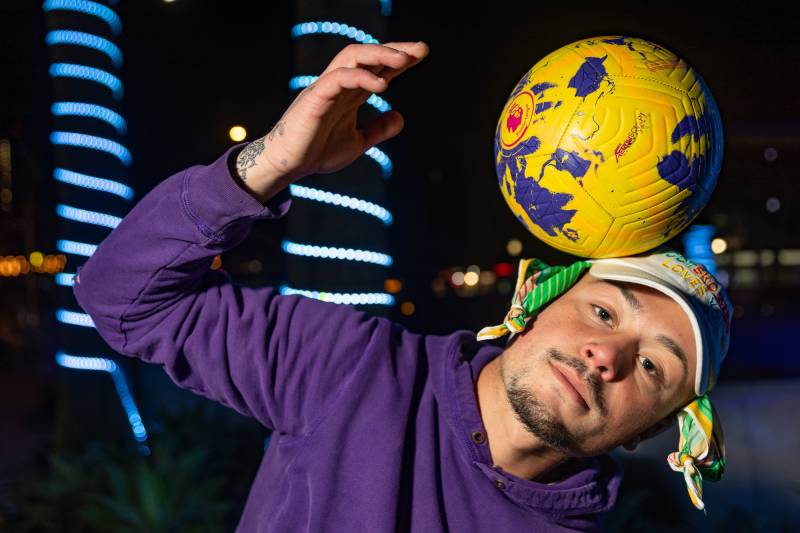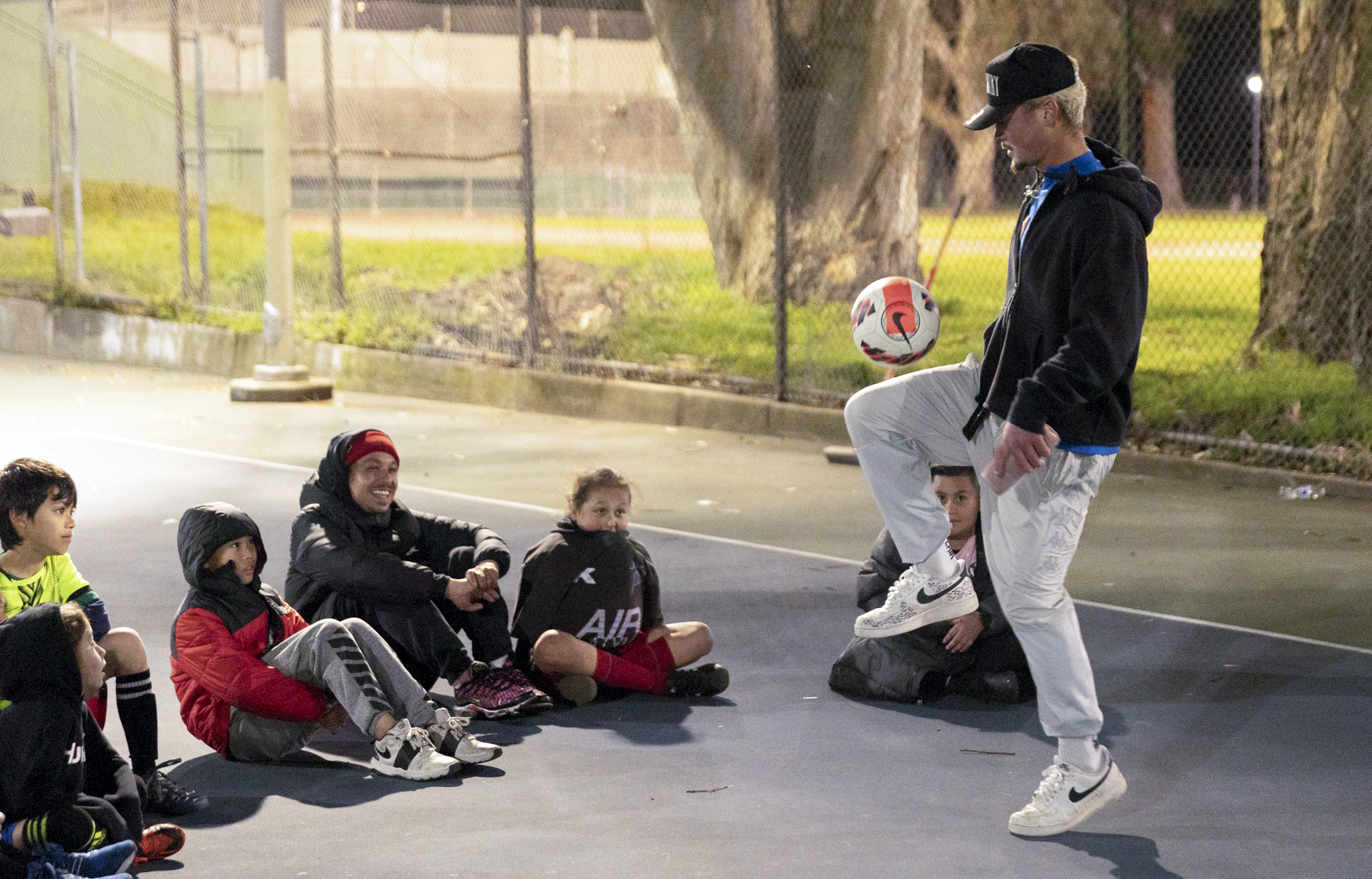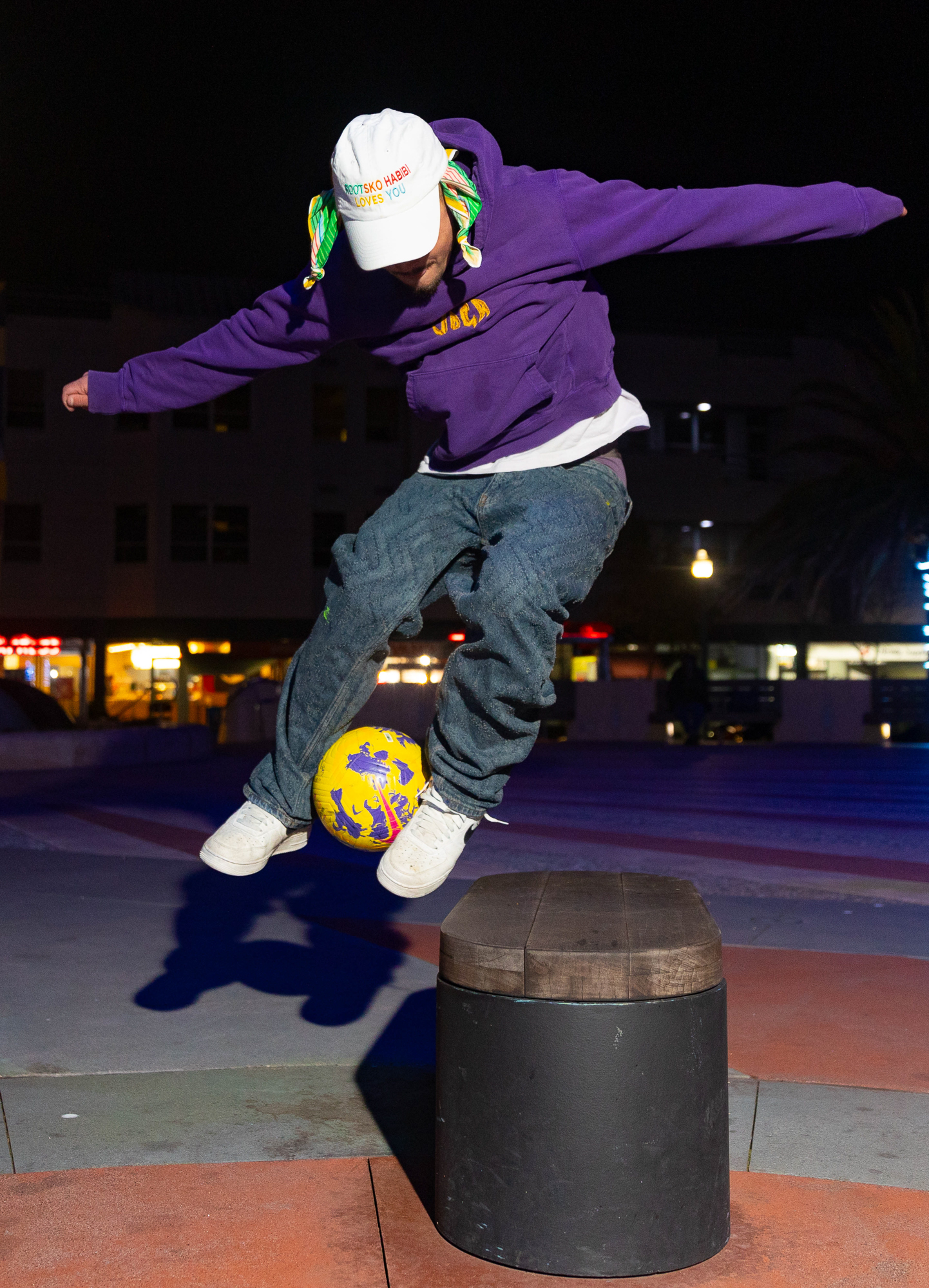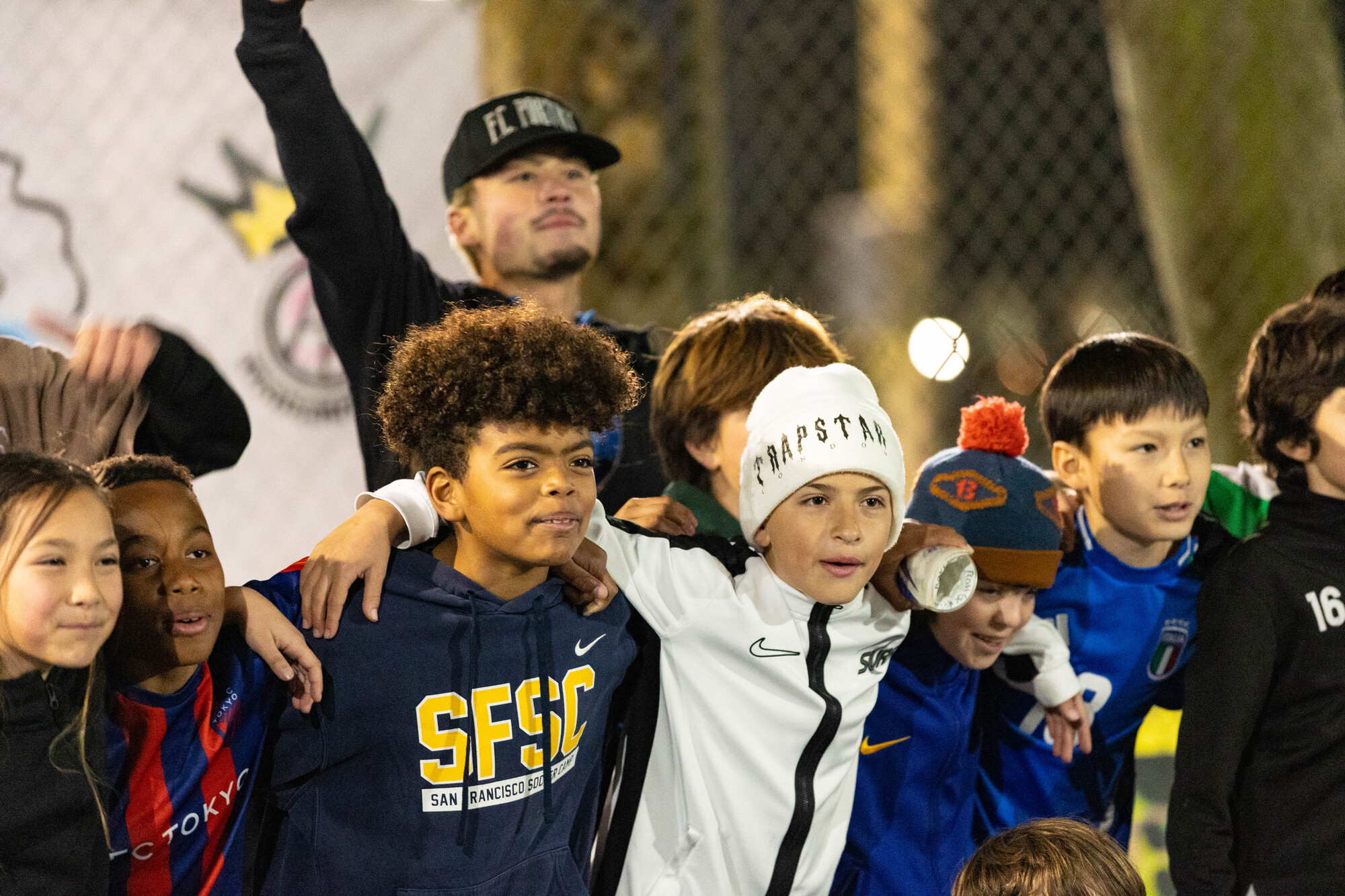W
hen Marco Jacques touches a soccer ball, heads turn. For Jacques, nothing outdoors is off limits; everything can be a stage to sharpen and show off his skills as a street-style soccer player and artist. One of the newest members of the San Francisco City Football Club team, Jacques was crowned “Man of the Match” in July 2024. At 24 years old, with a whole career behind him, Jacques is carving a new legacy for himself. Whether he’s juggling a ball down a runway, scoring breathtaking goals or designing clothes for his streetwear brand, Joga Jax, Jacques’ love for the game is enlivening.
On a recent Monday night at San Francisco’s Crocker Amazon Park, Jacques jogs over to the basketball courts. As the sun sets, he and his longtime friend Rei Dorwart, another local soccer legend, transform the court into a street-style soccer clinic for youth, an offshoot of Dorwart’s organization, Futbol by the Bay. Ditching the grass for the courts allows the players to develop the skills to become fluent in artistic, fast-paced moves that set street-style apart from mainstream soccer. As a final touch, Jacques climbs the fence to hang the banner with the FBTB logo, which he helped design.
Like many creatives, Jacques is multidimensional. In conversation, he appears soft spoken and careful with his words. With the kids, he playfully coaxes out their confidence. But when it’s his turn to hop in a game, he trades the thoughtful demeanor for a fiercer presence and sharp tongue, unleashing a lifetime of practice.
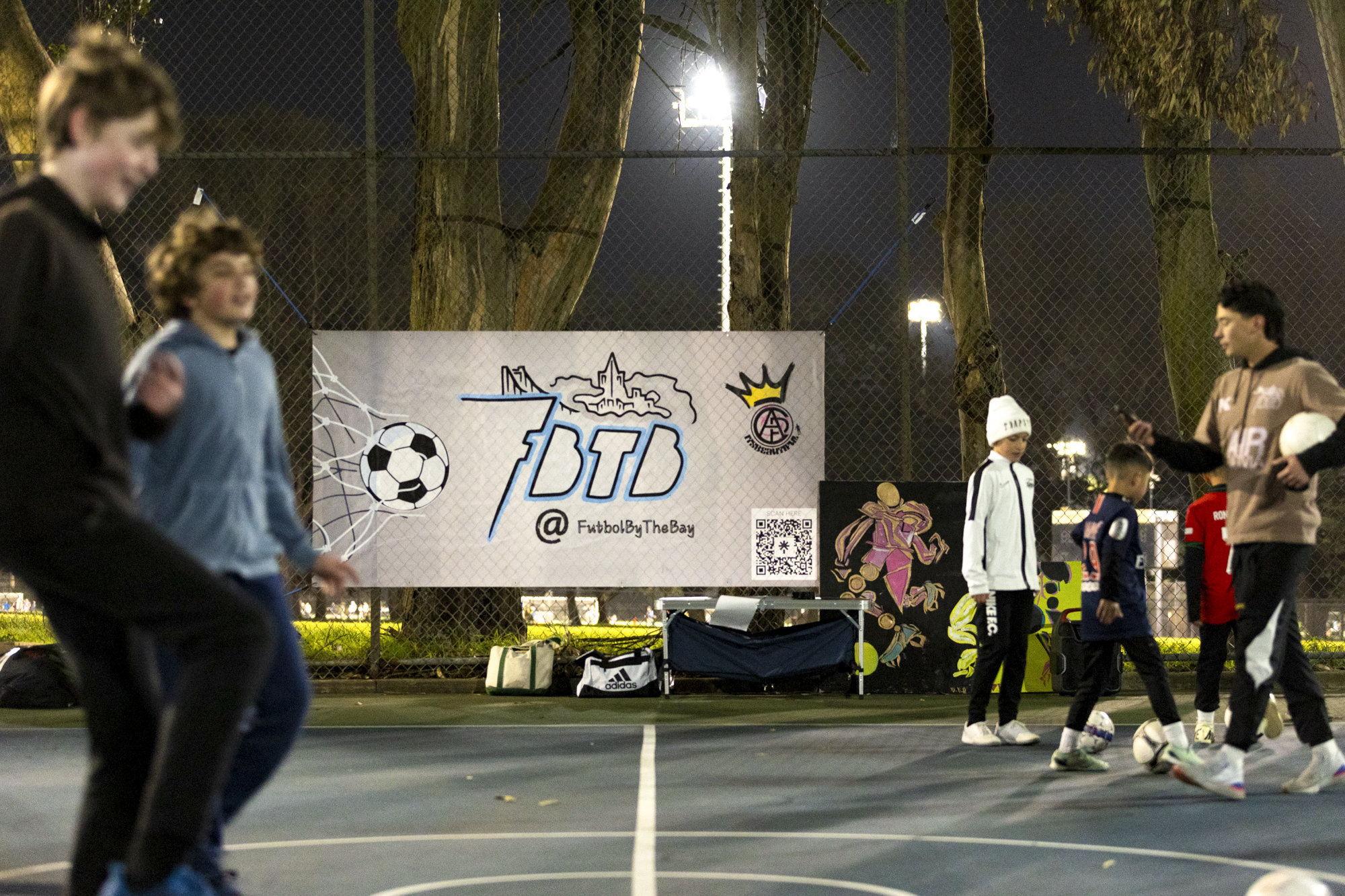
B
orn and raised in San Francisco by Spanish and Italian parents, Jacques was taught to love the sport early in life. That love blossomed into an electric career. At 13, he was scouted to play for the San Jose Earthquakes Academy. At 18, he went on to play for a team in Naples, Italy. But after a few months, he returned to the States to play Division I soccer at Grand Canyon University in Arizona. It was an opportunity that a lot of his peers dreamed of, but Jacques couldn’t help but feel like he had fumbled the chance of a lifetime.
“I was really hard on myself,” he reflects. “I developed a really bad eating disorder, and I had to deal with just feeling like I had failed. I wasn’t giving myself any slack, I was not tapping into that joy of the game. I felt like I wasn’t enough.”
